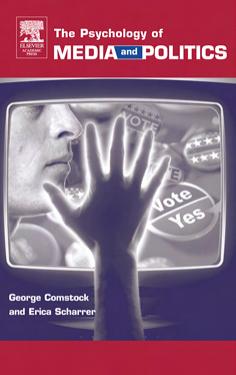

Most ebook files are in PDF format, so you can easily read them using various software such as Foxit Reader or directly on the Google Chrome browser.
Some ebook files are released by publishers in other formats such as .awz, .mobi, .epub, .fb2, etc. You may need to install specific software to read these formats on mobile/PC, such as Calibre.
Please read the tutorial at this link: https://ebookbell.com/faq
We offer FREE conversion to the popular formats you request; however, this may take some time. Therefore, right after payment, please email us, and we will try to provide the service as quickly as possible.
For some exceptional file formats or broken links (if any), please refrain from opening any disputes. Instead, email us first, and we will try to assist within a maximum of 6 hours.
EbookBell Team

4.1
70 reviewsResearch indicates that people discount their own opinions and experiences in favor of those of "experts" as espoused in the media. The framing of news coverage thus has a profound impact on public opinion, and political decision making as a response to public outcry. However, the choice of how to frame the news is typically made to solicit viewership and high ratings rather than to convey accurate and meaningful information. This book discusses why people discount their own opinions, how the media shapes the news, when this drives political decision making, and what the effect is on the future of society.
Issues addressed include:
How powerful are the media in shaping political beliefs/judgment?
How has this power changed in recent years?
How does media influence voting behavior?
To what extent do media opinions affect political decision making?
Demonstrates the ways in which the media both constrain and facilitate democratic participation
Provides insight into why individuals have varying levels of attention to and interest in politics
Discusses such issues as political advertising, polls, debates, and journalists' pursuit of scandal
Describes why only some Americans turn out to vote in prominent elections.
Offers a model of personal- versus social-level influences that extends beyond politics into other important topic areas
Brings together research and theories from the fields of Communication, Psychology, and Political Science
* Reviews hundreds of key sources, both historical and contemporary